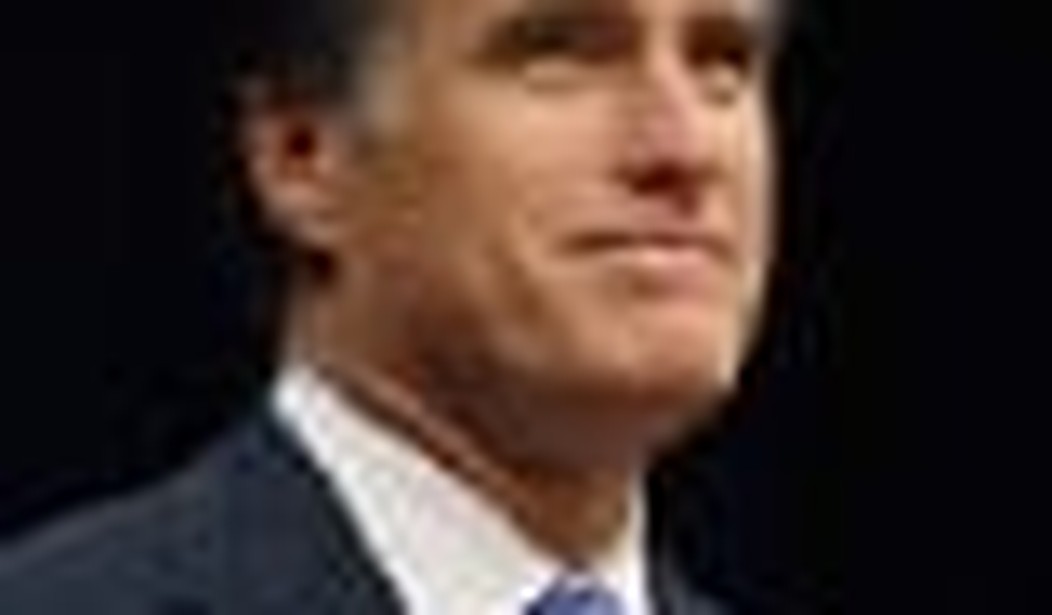The Republican 2012 contenders are keeping their powder dry — sort of. The public doesn’t seem anxious to endure another presidential campaign stretching over multiple years. And we learned that spending millions and jumping out to a lead in polls a year or more before the first primary vote is no guarantee of success. Still, there is a fair amount of political throat-clearing and jostling as the contenders vie to stay in the public view and establish their standing as credible challengers to the president.
Last week, Newt Gingrich and Mitt Romney appeared at the Foreign Policy Initiative conference to lay out their case against the president’s approach to foreign policy and align themselves with a forward-leaning, free-trading, and American values-based foreign policy vision. Tim Pawlenty has been throwing some shots at Romney over his Massachusetts health care plan (Romney hasn’t bothered to respond) and Mike Huckabee is everywhere — in Israel and on Fox News most visibly. Sarah Palin pushed “death panels” into the public debate, both horrifying her opponents and cementing the attachment of her fans. And in Hong Kong she too talked foreign policy last week, taking issue with the president’s defense cuts and emphasizing the importance of free trade and human rights as part of America’s international agenda.
It is far from clear who will actually jump into the 2012 race, but we are getting a sense of the opening lines of the campaign. There are four of them already in circulation.
First: “It turns out experience matters.” Obama ran with inexperience as a badge of honor and “change” as his message. The result is a mound of debt, a confused and erratic foreign policy, and a campaign-obsessed and governance-challenged president. Maybe it is time, the contenders will argue, for someone who has done something, built something, or run something before getting to the White House. Competency matters and executive leadership skills which go beyond speechifying make all the difference between failure and success.
Second: “The American people were had.” Conservatives early on sniffed out Obama as an ultra-liberal with a big government agenda, but it took an entire campaign and the better part of a year in office for most Americans to figure it out. It may not be an effective ploy to run through the list of broken campaign pledges — candidates are expected by many cynical voters to lie about what they will do. But they aren’t expected to lie about their political identity and overarching vision for governance. Obama isn’t moderate, doesn’t like the free market, and isn’t interested in waging a robust war on Islamic fundamentalists. The 2012 contenders will no doubt argue that he is not simply a far-left liberal, but was a dishonest one.
Third: “It’s Barack Obama’s economy — and debt.” By 2012, if we haven’t hit the second dip in a double-dip recession, we are likely to be seeing some positive GDP. But job growth remains another story. Some estimate we aren’t going to see meaningful reduction in unemployment until 2014. That’s a problem, as John Judis of the New Republic recently argued by looking at the historic relationship between unemployment and election results:
For both Roosevelt and Reagan, what mattered was not the actual state of the economy, but whether things were getting better or worse. The unemployment rate was still incredibly high when FDR won reelection in 1936, and Reagan didn’t actually lower unemployment between the time he took office and the time he was reelected–he only managed to get it back to where it had been at the start of his term. But, in both 1936 and 1984, the trajectory of unemployment was downward, and that was the key.Moreover, history suggests that it is not enough for the economy to be headed in the right direction; it has to be headed in the right direction in tangible ways that voters can see. Economists pronounced the recession of the early 1990s over in March 1991. But, when unemployment continued to rise through 1991 and most of 1992 and real wages stagnated, the public perceived the economy to still be declining — and it punished George H.W. Bush accordingly.
Meanwhile, the projected deficit is headed to $9 trillion over the next decade according to the Office of Management and Budget and the Congressional Budget Office. If Republican John McCain carried the burden of the Bush economic record in the 2008 campaign, Republicans will certainly try to make sure Obama gets full “credit” for unemployment and the mounds of debt he will have accumulated.
Fourth: “No bleeping way is America in decline.” That’s actually not an invented line — it’s a paraphrase of a real one uttered by Romney at the FPI confab which got him his biggest laugh and round of applause. It’s a sentiment others will certainly pick up on. As Romney explained, Obama and his foreign policy clique seem to be enamored of the idea that America’s day has passed and it can no longer assert its military, economic, and moral might in a “multipolar” world — or something like that. None of the Republican contenders buy into that and each in his or her own way will sound Reagan-esque themes as Palin did in her Hong Kong speech: restore America’s defense budget (which Obama is determined to take down to 3% of GDP), go forward with full funding for missile defense, counter Russian aggression, and defend human rights and democracy against despots. Obama thinks American exceptionalism is cringe-inducing chauvinism; Republicans know it to be the foundation of a successful foreign policy.
Don’t expect any candidate to announce for 2012 until well after the 2010 congressional races are over. But if you listen carefully you can already hear the campaign underway. The lines and the themes really all boil down to a simple idea: it wasn’t the “change” we had in mind. It seems with each passing day more Americans may be susceptible to that message.









Join the conversation as a VIP Member